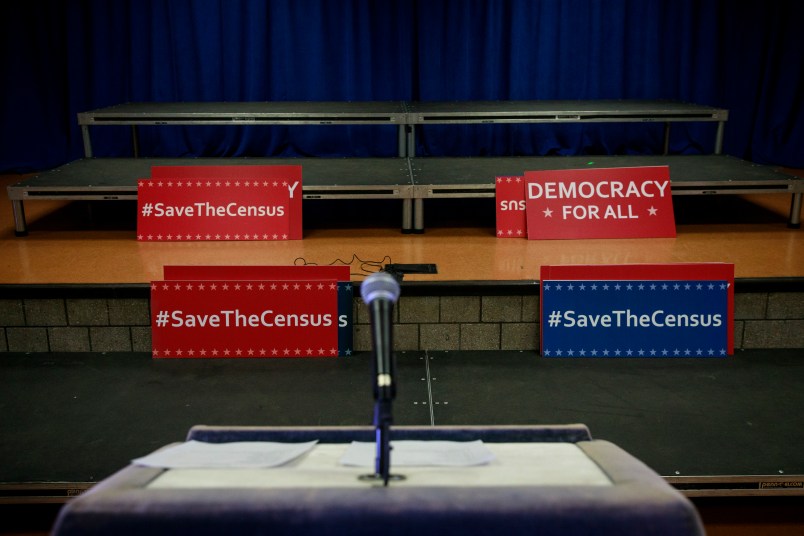A federal judge in Maryland on Friday struck down the move by the Trump administration to add a citizenship question to the 2020 census.
U.S. District Judge George Hazel said the question violated the Constitution’s Enumerations Clause because it compromised the survey’s accuracy. The judge also ruled that the way in which the administration went about adding the question violated the Administrative Procedure Act. Yet, the challengers did not win on their claim that adding question was also a civil rights violation, as they failed “to show that the addition of the citizenship question was motivated by invidious racial discrimination,” according to the judge.
Hazel’s order blocked the Trump administration from including the question on the census, regardless of whether it found a way to do so in compliance with the Administrative Procedure Act.
Hazel is the federal second judge to rule the question unconstitutional and the third to say the move to add it violated the administrative law.
However, whether the question stays on the upcoming decennial survey will ultimately be up to the Supreme Court, which has scheduled arguments on the issue for later this month.
Read Hazel’s full decision below:







Since SCOTUS will rule on this, none of these court decisions amount to a hill of beans.
It’s difficult for the SC to ignore multiple courts that rule the same way on a case, especially a highly visible one with partisan trimmings. If the SC rules against all these courts, and bases their ruling on a transparently biased reading of the law, then it makes the case into one that just supports the party power play. Roberts doesn’t like doing that openly, it makes him uncomfortable to have the SC seen as a partisan tool. Against that is how this case will help Republicans hold power over the next decade…it’s no longer clear that Roberts is willing to stick his neck out for the Trump version of the Republican party holding power. We’ll have to see in June if he really will go along and overrule the judiciary on this one.
Unless Squi says there’s beer involved.
Trump Administration = Invidious Racists
∴ Trump Administration Policy = Invidious Racial Discrimination
Q.E.D.
Works for me . . .